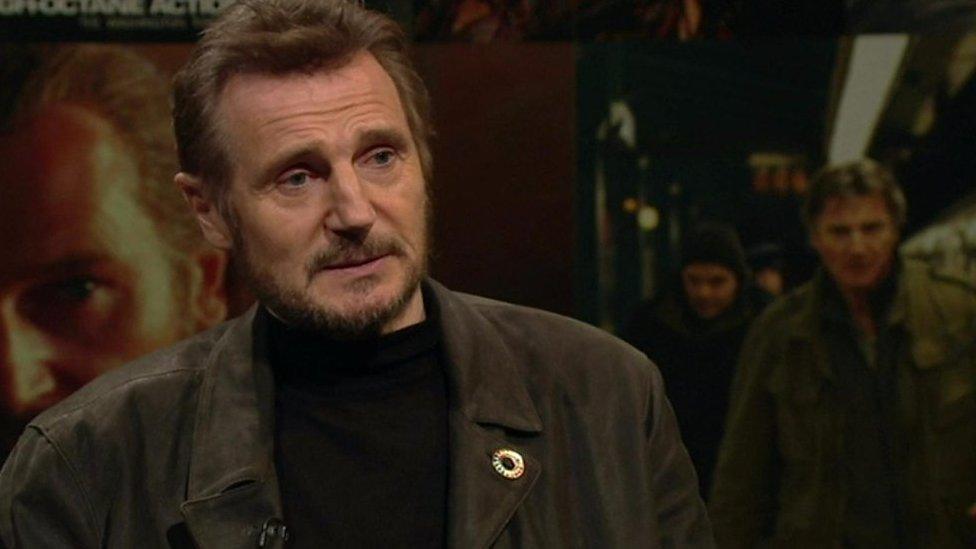Liam Neeson says he's 'not racist' after controversial interview
- Published
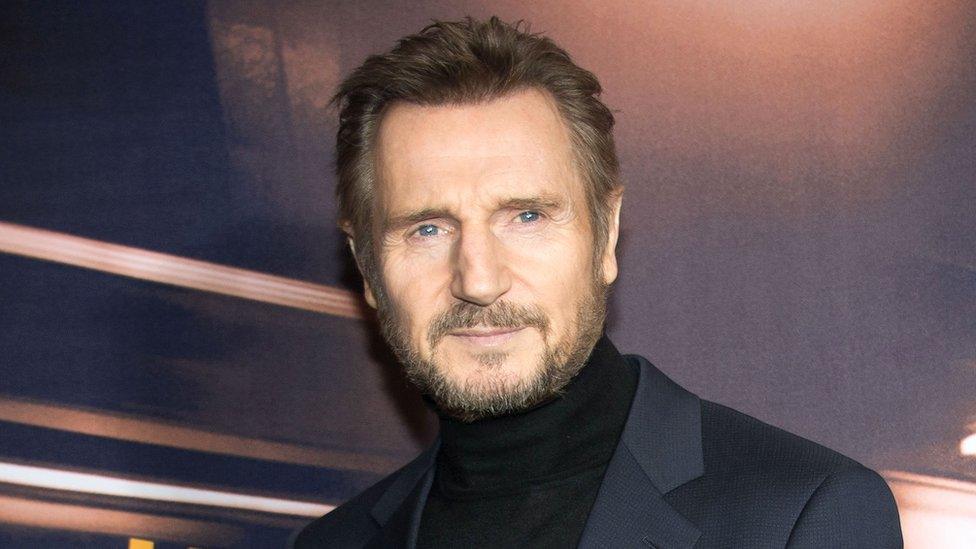
Liam Neeson has denied he is racist, after admitting he once set out to kill any black man who provoked him.
The actor has been facing a major racism storm since he made the comments in an interview, published by The Independent, external on Monday.
He had said he walked the streets with a weapon around 40 years ago, hoping to take out his anger after someone close to him was raped by a black man.
But speaking on ABC's Good Morning America, Neeson said: "I'm not racist."
Neeson added that he wanted his original comments to start a wider conversation about racism.
Asked what he wanted people to learn from his experience, he told the host: "To talk. To open up.
"We all pretend we're all politically correct in this country... in mine, too. You sometimes just scratch the surface and you discover this racism and bigotry and it's there."
The Hollywood star told ABC's Robin Roberts on Tuesday that around 40 years ago, one of his close female friends - who had since died - told him she had been raped.
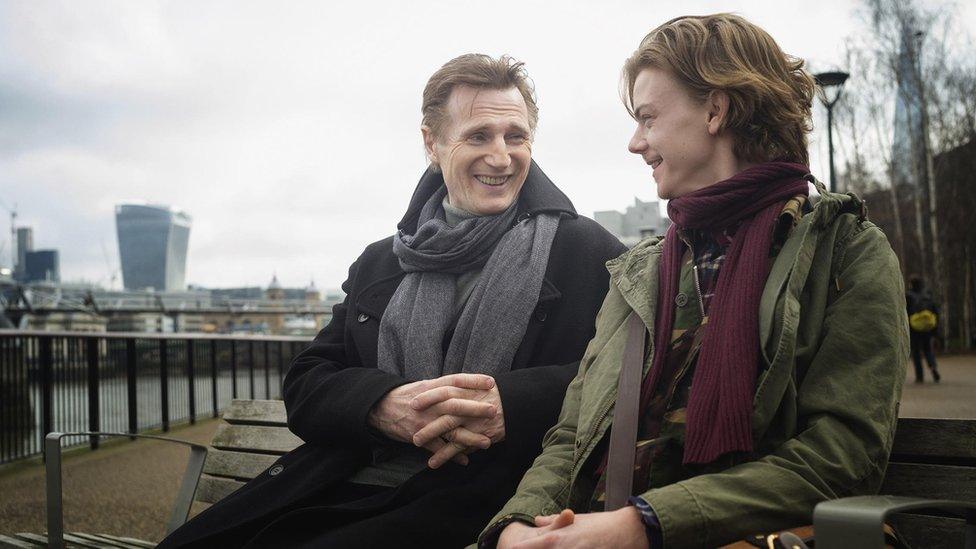
The Love Actually actor has starred in several revenge-themed films in recent years
Neeson said it made him want to take violent action.
He said: "I had never felt this feeling before which was a primal urge to lash out, and I asked her, 'Did you know the person, was it a man?' No. 'Race?' She said it was a black man."
The actor said he "went out deliberately into black areas in the city looking to be set upon so that I could unleash physical violence".

Neeson alongside Tom Bateman in Cold Pursuit
He added: "I did it maybe four or five times."
The Taken star claimed he would have acted in the same way if his friend's assailant had been white.
He told ABC: "If she had said an Irish or a Scot or a Brit or a Lithuanian it would - I know it would - have had the same effect.
"I was trying to show honour, to stand up for my dear friend in this terribly medieval fashion."
Former footballer John Barnes says Liam Neeson ‘deserves a medal’.
Neeson said of his actions: "It shocked me and it hurt me. I did seek help."
The actor said he went to confession and went power walking for two hours every day, to try to work through his anger.
'Collective punishment'
Neeson has been subject to huge criticism since his original interview was published on Monday.
In that, he was speaking to promote his new film Cold Pursuit, a thriller about a man who seeks retribution after his son is murdered.
Asked how his character turns to anger, he replied that "something primal" kicks in when someone close to you is a victim of violence.
Listen to Liam Neeson's comments that sparked the outrage
The Guardian's Gary Younge wrote, external: "The next time someone asks me why I have a chip on my shoulder, I need no longer brush the question away with disdain.
"I can say, with all sincerity: 'Because there may well be an Oscar-nominated actor out there who wants to kill me, so I have to be alert at all times...'
"Neeson is angry and upset and decides to invest his rage in the collective punishment of a group of people based on the colour of their skin."
'Deserves a medal'
But former England footballer and anti-racism campaigner, John Barnes, defended Neeson during an interview on BBC Radio 5 Live.
"He was ashamed a week into it. He understood that he was wrong for thinking what he did.
"And we have to have this conversation.
"Because there's so many people who have this perception, a wrong perception, of black people, Chinese people, based on what they have been wrongly told about them.
"It's understandable why he thought the way he did, because it's what the world has wrongly shown him."
He added that Neeson "deserved a medal" for admitting he was wrong so soon after the event.
Playwright and author Bonnie Greer says Neeson’s race comments were a “silly, stupid thing to do”
Kehinde Andrews, a professor of black studies at Birmingham City University, said Neeson's comments were "completely inappropriate and offensive" and to make them as he promoted a film was "distasteful".
He told the BBC News Channel he was worried some of the reaction to the remarks "seem to be absolving" the actor and it "should be about how deeply-seated these ideas still are".
Playwright and author Bonnie Greer said Neeson had "probably put paid to his career".
She said: "We are in an age where people are very sensitive and the fact that he doesn't understand what he's doing or what he's done is actually almost scarier than what he said."
Many on social media have also had their say since the story first broke on Monday.
Allow X content?
This article contains content provided by X. We ask for your permission before anything is loaded, as they may be using cookies and other technologies. You may want to read X’s cookie policy, external and privacy policy, external before accepting. To view this content choose ‘accept and continue’.
Frederick Joseph, who works for better representation in the media, wrote that Neeson's story "just shows how meaningless and inconsequential black lives are to some".
Allow X content?
This article contains content provided by X. We ask for your permission before anything is loaded, as they may be using cookies and other technologies. You may want to read X’s cookie policy, external and privacy policy, external before accepting. To view this content choose ‘accept and continue’.
But some agreed with Barnes that Neeson should not be castigated for admitting such thoughts but realising they were wrong and saying he had learned from them.
Allow X content?
This article contains content provided by X. We ask for your permission before anything is loaded, as they may be using cookies and other technologies. You may want to read X’s cookie policy, external and privacy policy, external before accepting. To view this content choose ‘accept and continue’.
Follow us on Facebook, external, on Twitter @BBCNewsEnts, external, or on Instagram at bbcnewsents, external. If you have a story suggestion email entertainment.news@bbc.co.uk, external.
- Published15 June 2017
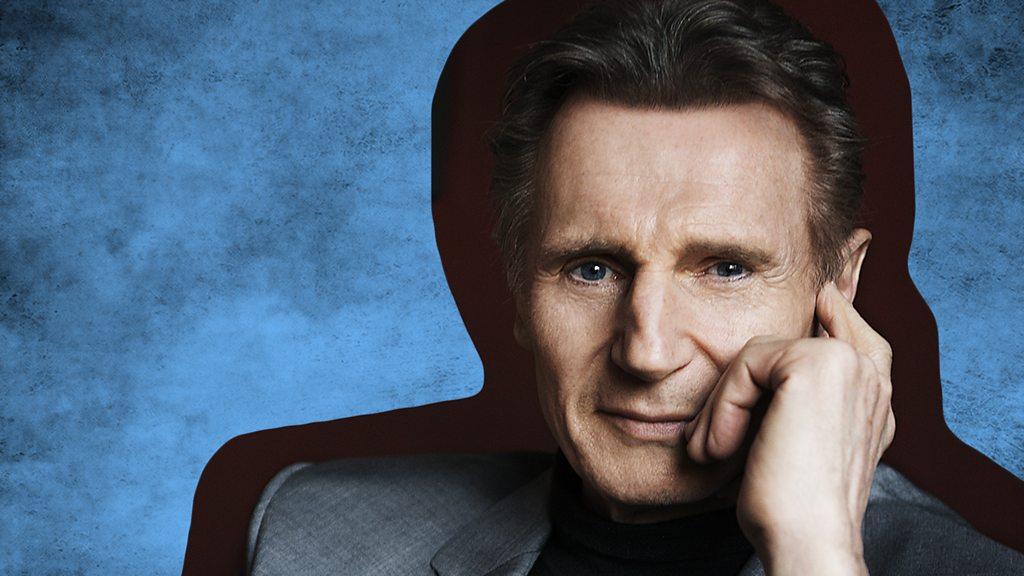
- Published8 February 2017
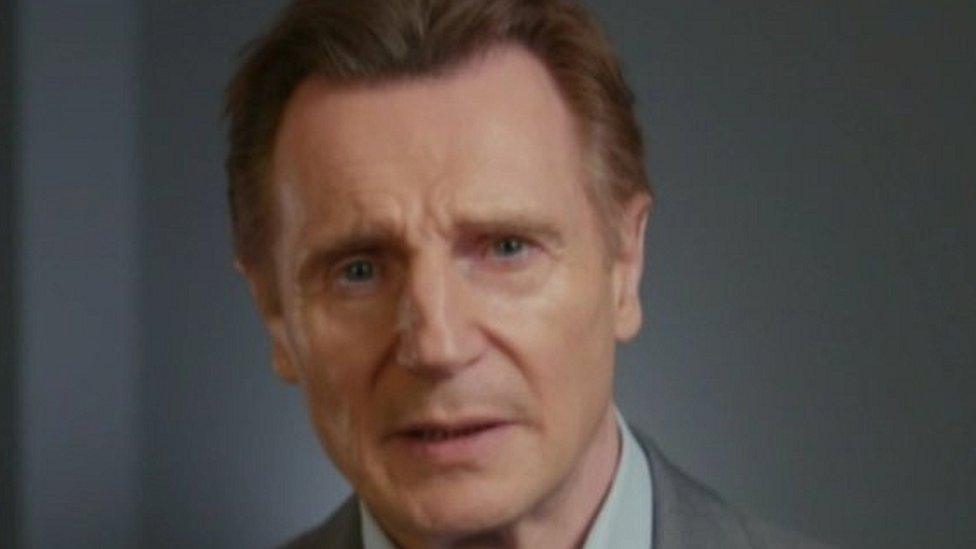
- Published13 January 2018
